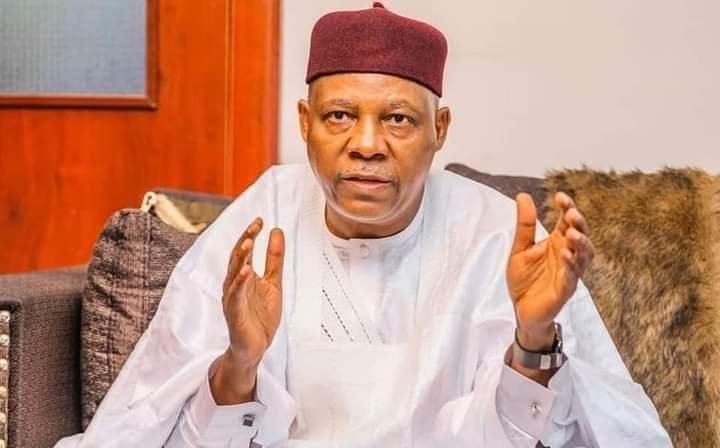Vice President Kashim Shettima has said international cooperation is the path to resolving global challenges.
He stated this on Friday in his address to World leaders at the ongoing G77+China Leaders’ Summit at the Palace Convention in Havana, Cuba.
Shettima, in a statement released on Saturday by Olusola Abiola, Director Information, Office of the Vice President, expressed Nigeria’s commitment to tow the path of partnership with member states of the G77+China towards addressing global challenges.
FG to construct 1,000 houses in seven states – Shettima
Ndidi, Edozie on target as Leicester City crush Southampton
Speaking to an assembly of Heads of State and Government, the UN Secretary-General, Antonio Gutteres and delegates from over 100 countries from the global South, he stressed the need to be focused on leveraging cooperation or partnership to find realistic solutions to global challenges.
“We must always remember that cooperation is our compass and the most realistic path towards maximizing the opportunities and resolving challenges before us.
“We must not allow geopolitical tensions in any corner of the world to deter us from forging a collective and mutually advantageous path forward – a roadmap of shared prosperity and progress,” he advised.
According to him, “Allow me to reiterate Nigeria’s commitment to partnering with our fellow member nations of the G77 and China.”
“We shall champion initiatives that harness the potential of science, technology, and innovation to confront economic challenges, particularly within the global south,” he pledged.
Speaking to the theme: “Current Development Challenges: The Role of Science, Technology and Innovation,” the Vice President underscored the prominent role which science, technology and innovation have always played in resolving challenges from the past to the present.”
Delivering his speech titled: “From Pandemic to Paradigm Shift: Nigeria’s Road to Reinvention,” Vice President Shettima said “Throughout history, science and technology have shaped the course of nations. The phases of the Industrial Revolution, from the first to the fourth, and from mechanization to automation, have determined the prosperity of those nations.”
He said, “It is crucial to acknowledge that the developing world found itself at a disadvantage in the earliest phases of these transformations, struggling to compete fairly as these revolutions swept across the globe.”
The Vice President told his audience that Nigeria is contributing its own share in leveraging science, technology and innovation to resolving challenges such as COVID-19 and the climate crisis.
He explained that Nigeria “understands that the key to advancing innovation in science and technology lies in fostering a vibrant knowledge economy and facilitating the unrestricted exchange of ideas.
This the Vice President said is the reason why “across the globe, one would be hard-pressed to identify a premier institution, even within the most developed nations, where a Nigerian, trained at home, is not contributing significantly, whether as a tech innovator or a medical specialist, in the noble pursuit of improving the human condition.”
On the efforts of the Federal Government to combat COVID-19 in Nigeria using science and technology, the Vice President said “The COVID-19 pandemic, while a tragic chapter, served as a catalyst for our brilliant minds in Nigeria to rejuvenate their pursuits in the fields of science and technology.”
Adding that “Our scientists have successfully positioned our nation as a prominent global hub for mRNA vaccine production, a milestone currently in progress.”
Vice President Shettima, who lauded the contributions of the youth in the nation’s quest for science, tech and innovation, emphasized that “Nigeria’s demographic advantage is not limited to the absence of an ageing population. Nigeria stands as a beacon of youthful talent and innovation.”
On the climate crisis, the VP said, “The climate crisis around the globe too has dominated our agenda, prompting our youthful innovators to engage in crafting solutions.”
“This fervent commitment has resulted in the establishment of start-ups like the Climate Action Africa (CMA) Labs, a hub dedicated to addressing diverse challenges posed by climate change, including severe droughts, flooding, and the escalating agricultural complexities”, he declared.
The Vice President, while stressing the imperative of global partnership, warned that “the stakes are high. If we fail to act now, the prevailing trend could imperil our attainment of the Sustainable Development Goals (SDGs).”
Earlier in his welcome speech at the opening ceremony, the President of Cuba and Chair of G77+China, Miguel Diaz-Canel lamented the precarious situations faced by developing countries who are member-states.
He noted that science, technology and innovation have only benefitted developed countries while the global South still faces very serious development challenges; the President therefore called for collective wisdom to address the challenges.
The UN Secretary-General, Antonio Gutteres in his brief remarks also noted the development problems confronting developing countries and promised the UN system will continue to work with the G77 and China to proffer solutions to these challenges.

 Join Daily Trust WhatsApp Community For Quick Access To News and Happenings Around You.
Join Daily Trust WhatsApp Community For Quick Access To News and Happenings Around You.


